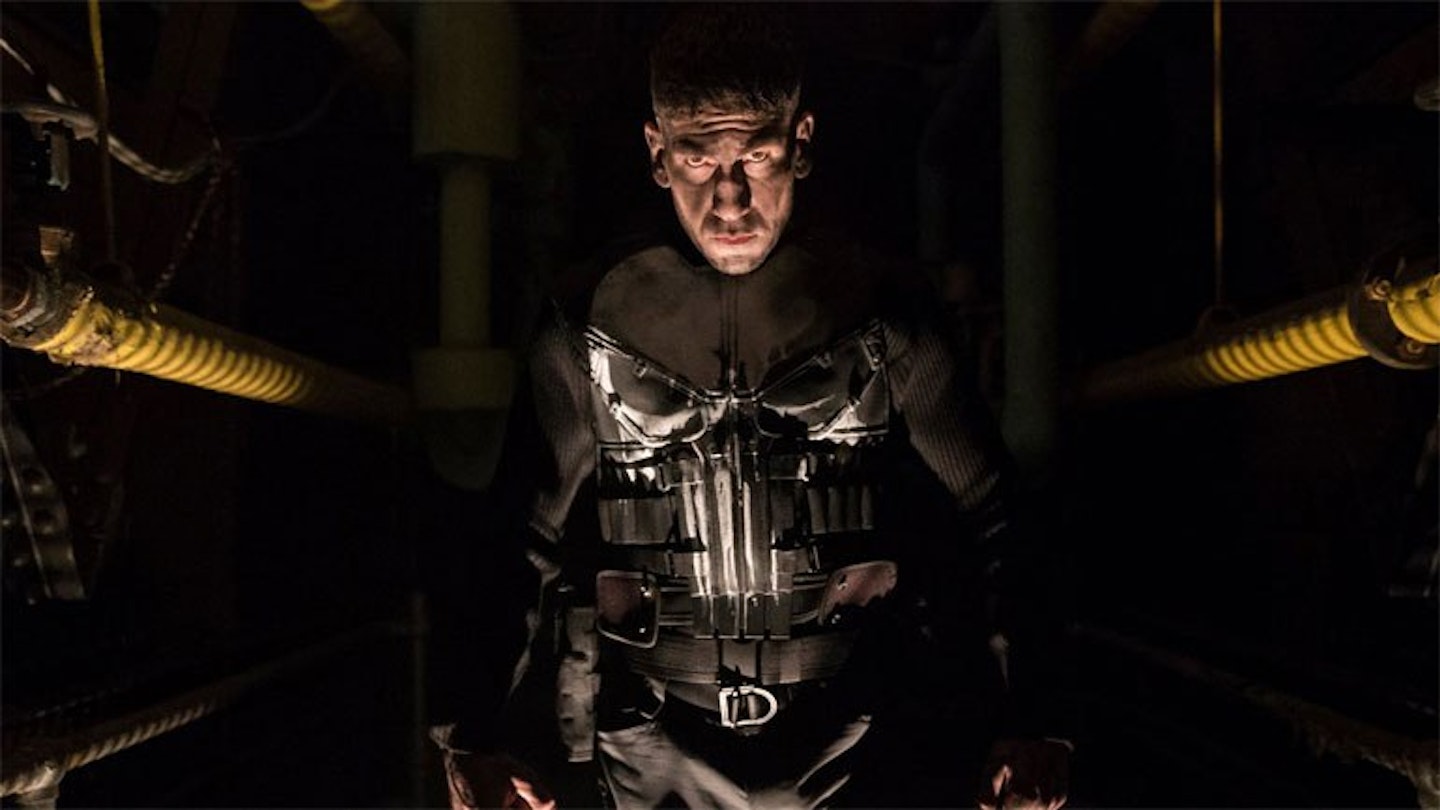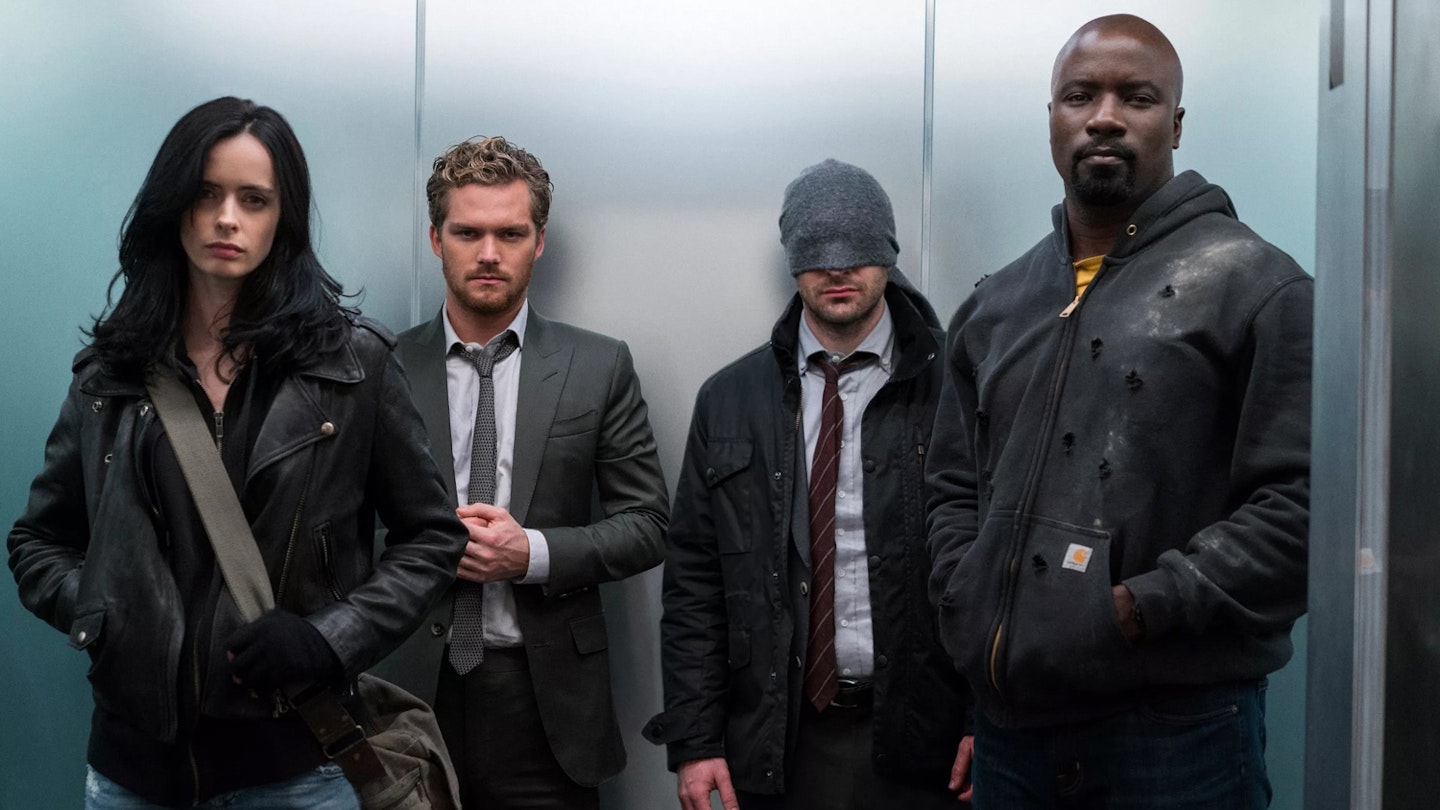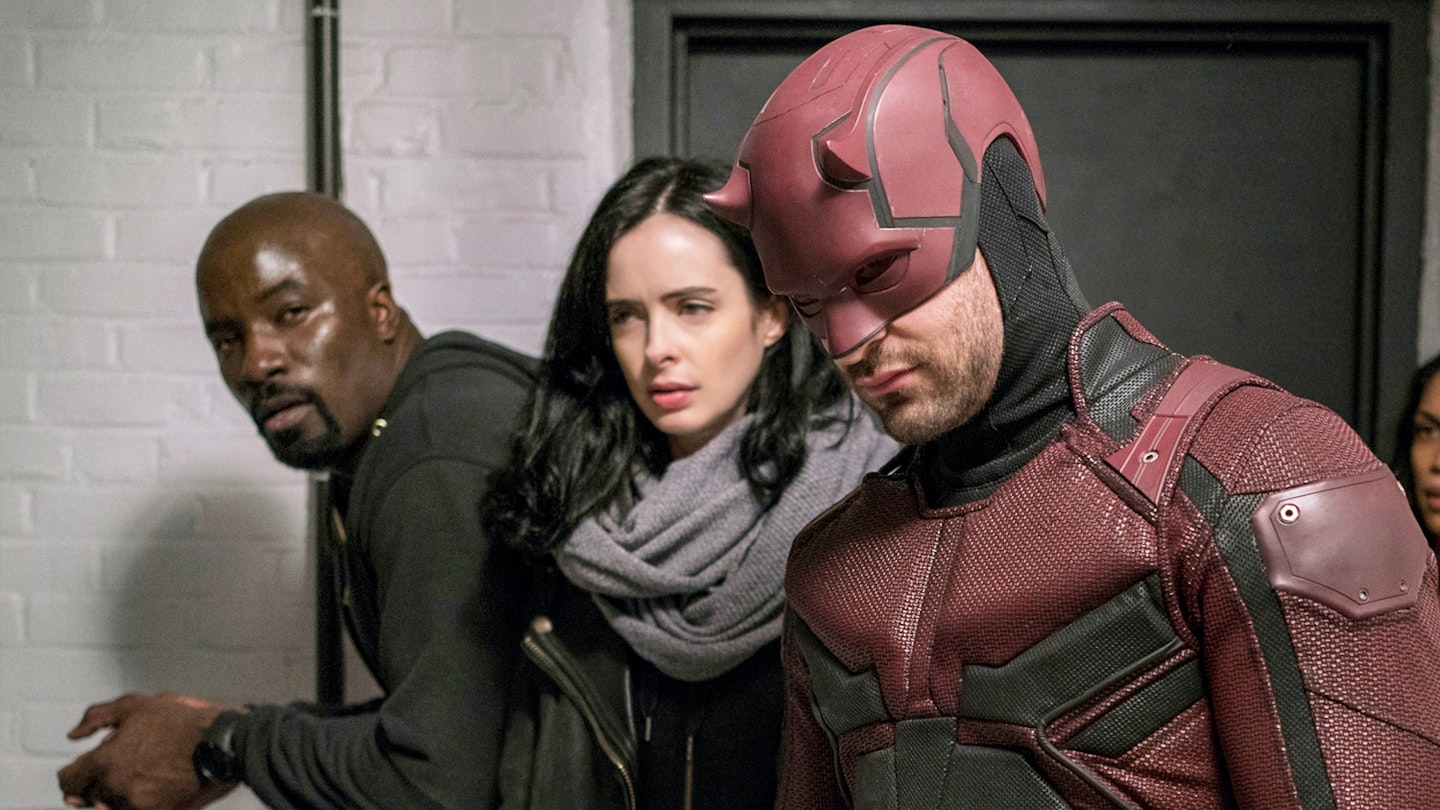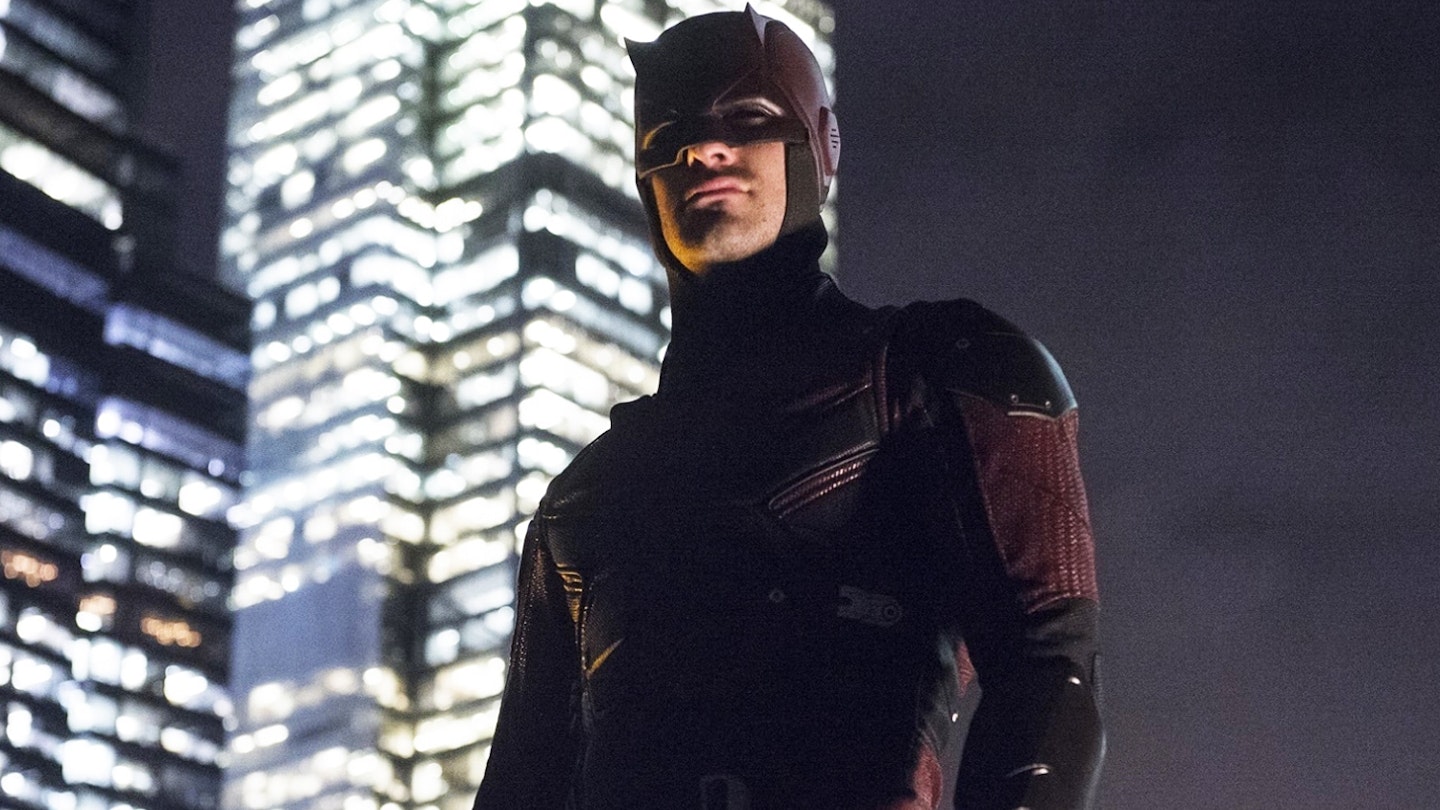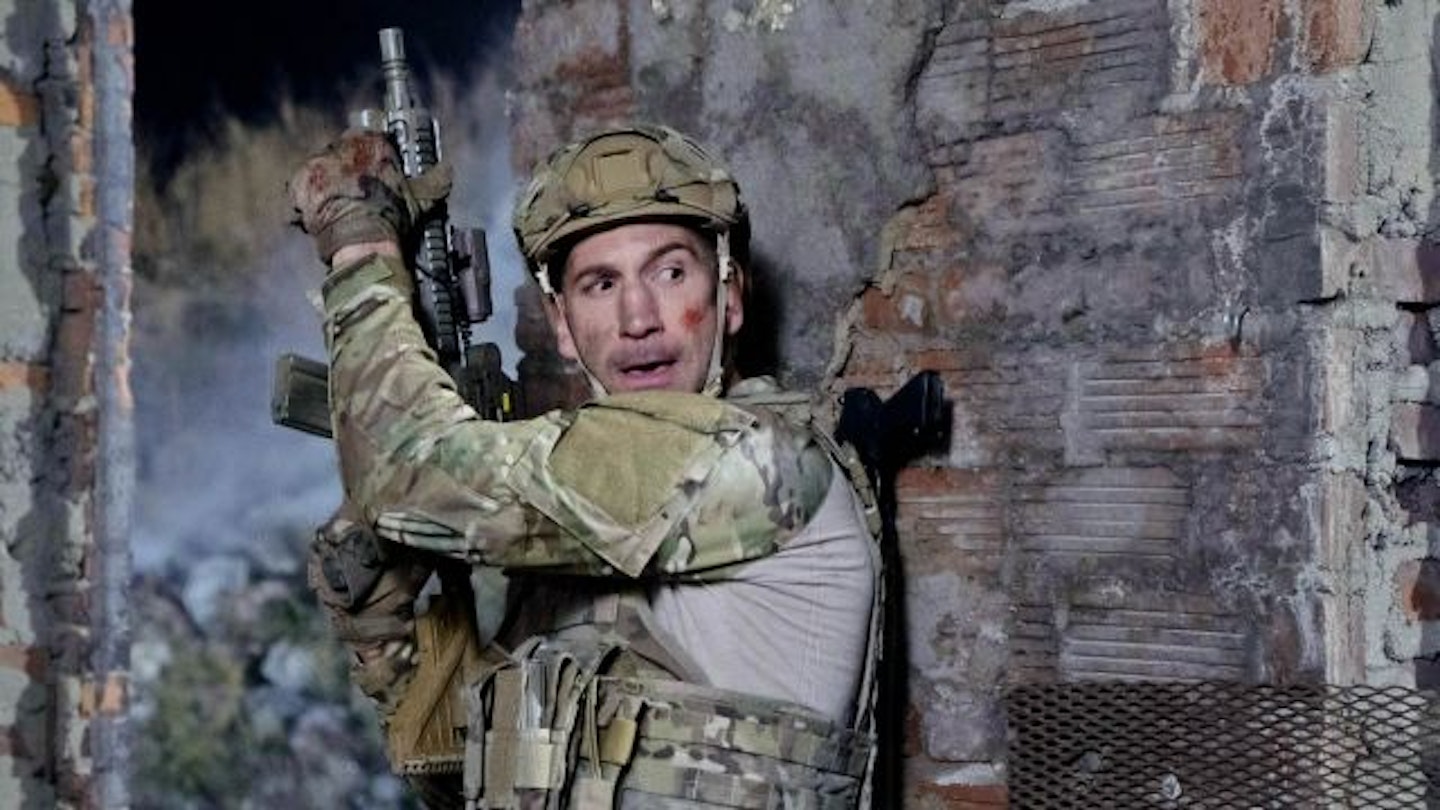
It’s hardly surprising Marvel and Netflix chose to pull The Punisher from their New York Comic-Con schedule in the light of the Las Vegas Strip mass shooting on 1 October. Virtually every episode features such flagrant gun violence, it wouldn’t be out of place in a John Wick movie.
Despite sharing the same world as Daredevil, Jessica Jones and Luke Cage, Frank Castle (Jon Bernthal) is no superhero. He’s not even a hero. He’s a damaged, dangerous, lone-wolf psychopath whose iron-rigid sense of justice makes him judge, jury, torturer and executioner all tightly packed into one. We see him take sniper shots at distant criminals, spray goon-packed rooms with flesh-slicing machine-gun fire and grimly put bullets into the brains of begging, blood-gargling casualties. Given recent events, and considering the terrifying ease with which the United States’ citizens can shoot each other to death, you have to question if The Punisher is really the anti-hero the country needs right now.
It feels like the question arose in showrunner Steve Lightfoot’s writers’ room, but by episode 13, it’s just as obvious they won’t (or can’t) provide any solid answers. Daredevil’s Karen Page (Deborah Ann Woll) pops up to oppose gun control, lamely debating the issue with an anti-firearms senator, who she calls out as a hypocrite before she’s dumped into a damsel-requiring-rescue situation that it’s suggested could have been avoided if she’d only had her pistol in her handbag.
Bernthal is Marvel/Netflix's strongest lead actor, as engaging during Frank's tender moments as he is in raging, one-man army mode.
At the same time, the show sympathetically considers America’s treatment of its war veterans: men trained to kill for their country, but then sent to other countries to instead kill for obscure political agendas, before being brought home and left to stew in their own, trauma-induced juices. Frank Castle is the product of such systemic mistreatment, as is another character who takes a subplot-antagonist position as a Timothy McVeigh Unabomber-type. The line between him and Frank is intentionally blurred. But is this providing a reason for their differently channelled murderous violence, or an excuse?
It is a problematic show; Frank’s methods are hardly condoned, but morally he gets a pass. However, if you set aside its perplexingly muddy politics, there is a lot to enjoy. The action choreography is excellent, particularly in episode ten, which blends elements of Leon and Rashomon. And Bernthal is Marvel/Netflix’s strongest lead actor, as engaging during Frank’s tender moments as he is in raging, one-man army mode.
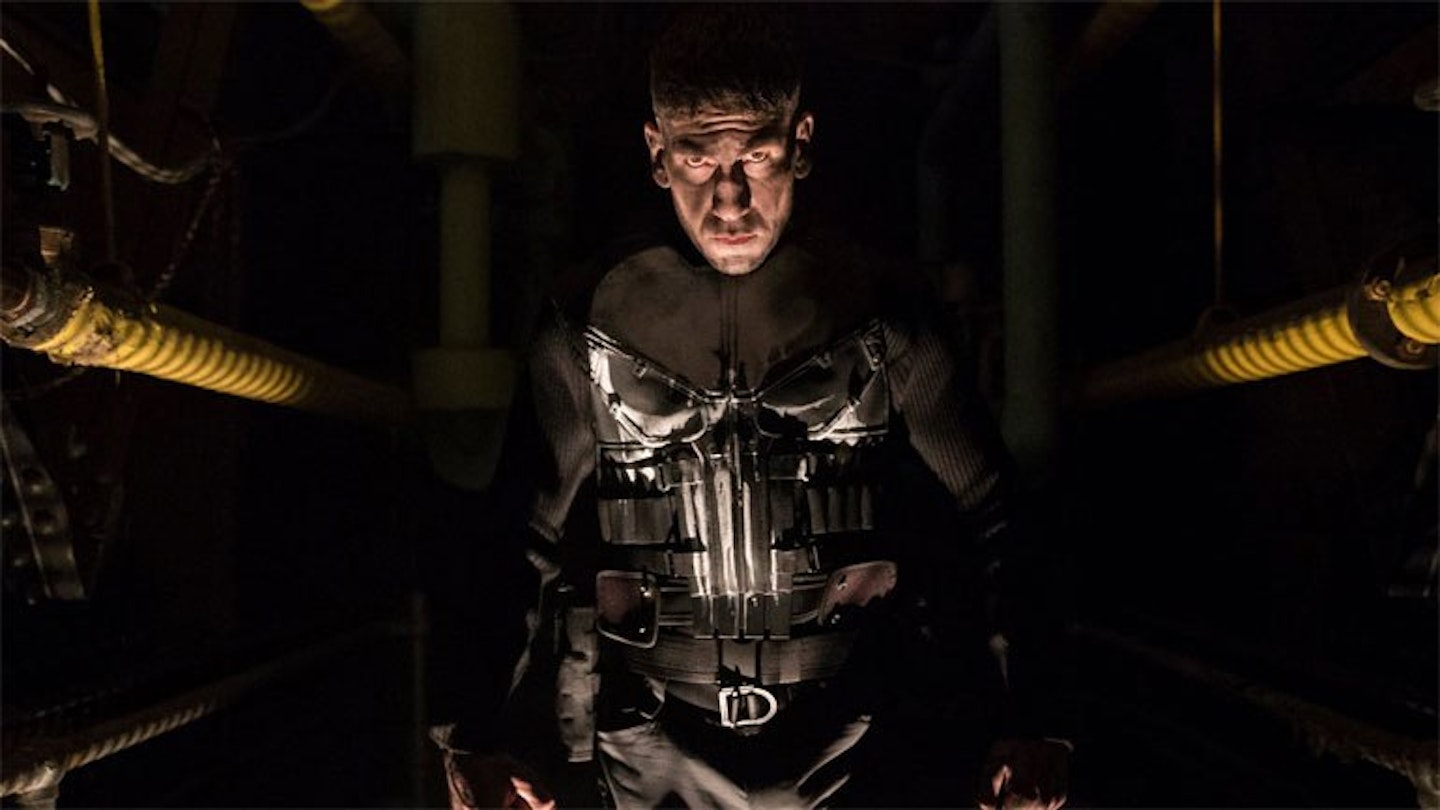
Fans of the comic-book character will rejoice that The Punisher presents his strongest on-screen story yet (including Bernthal’s debut as Castle in Daredevil Season 2), but again it’s a Marvel/Netflix show that, at 13 episodes, is stretched too thin.
And others may wonder if, in these fraught and sensitive times, it’s a character that should have been brought back to the screen at all.
